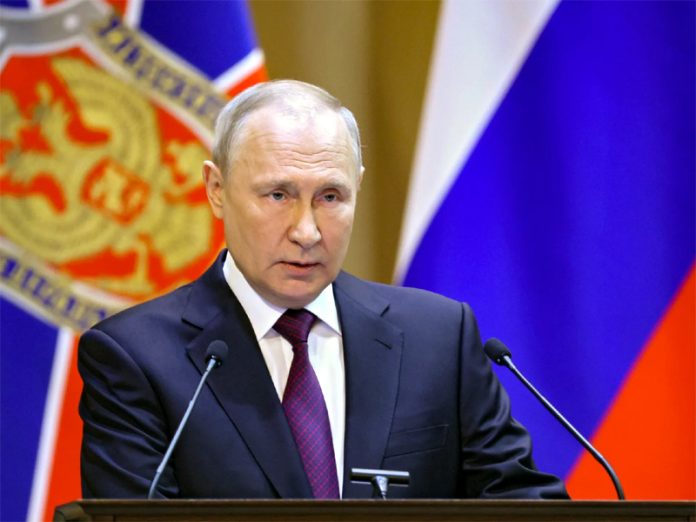Russia has accused the International Criminal Court (ICC) of strong political bias and legal impropriety following the issuance of arrest warrants against several of its senior officials, including President Vladimir Putin. The Russian Security Council’s Deputy Secretary, Alexander Venediktov described the court as having become “an obedient puppet in the hands of the collective West”
Speaking to Russian news agency Sputnik, Venediktov said “In recent years, the International Criminal Court has completely degenerated and become an obedient puppet in the hands of the collective West. Under pressure from its handlers, this judicial body made an unlawful decision to issue arrest warrants for our head of state and a number of officials.”
He claimed that a legal review conducted by international law experts found no credible evidence to support the charges: “A legal examination of the so-called ICC verdict, conducted by independent experts in international law, showed a complete absence of evidentiary basis and contradictions in the presented charges. These warrants grossly violate universally-recognised norms of international law.”
Venediktov escalating his attacks at the international body, criticised the ICC’s overall performance, questioning its legitimacy and impartiality: “This is due both to the court’s obvious inefficiency in actually administering international criminal justice and to numerous abuses and political games by high-ranking officials of this organisation.”
The ICC, which has its headquarters in The Hague, Netherlands, was established in 2002 under the Rome Statute to prosecute individuals for the most serious offences under international law, including war crimes and crimes against humanity.
The body, which has over 123 member states, had issued warrants for President Putin and Children’s Ombudsman Maria Lvova-Belova in 2023, citing alleged unlawful deportation of children from Ukraine during the conflict. Russia maintains that the children were evacuated from conflict zones for their safety and dismisses the ICC’s claims as unfounded.
While Russia was initially a signatory of the statute in 2000, it withdrew its signature in 2016 following criticism of the court’s decisions. The ICC’s involvement in the Ukraine conflict and its recent warrants against Russian officials have heightened tensions and revived long-standing debates over the court’s impartiality and authority. The Kremlin has repeatedly stated that it does not recognise the jurisdiction of the ICC, and therefore considers its decisions legally void.
Venediktov also criticised the ICC’s record, pointing to its $170 million annual budget and a staff of around 900, yet only 40 arrest warrants and 13 convictions since its establishment over two decades ago. He noted that major global powers, including China, India, the United States, and Russia, are not parties to the Rome Statute, the treaty that established the court.
He said the issue of politicisation in international legal cooperation would be addressed at an upcoming security forum in Moscow: “In this area, we also have something to offer our foreign partners.”
Former Russian President Dmitry Medvedev, now Deputy Chairman of the Security Council, also denounced the ICC’s actions as impractical and unfounded, saying the court “has reached the peak of absurdity with arrest warrants for heads of state, including Putin,” and that officials in The Hague “understood these decisions couldn’t be implemented in practice.” Medvedev also emphasised that “as head of a sovereign state, the Russian president has absolute immunity from foreign criminal jurisdiction.”
The ICC has since issued warrants for other Russian officials, including Security Council Secretary Sergei Shoigu and Chief of the General Staff Valery Gerasimov. Peskov has called these moves equally “absurd.”
The 13th International Meeting of High Representatives on Security Issues is scheduled to take place in Moscow from 27 to 29 May, chaired by Shoigu.








































